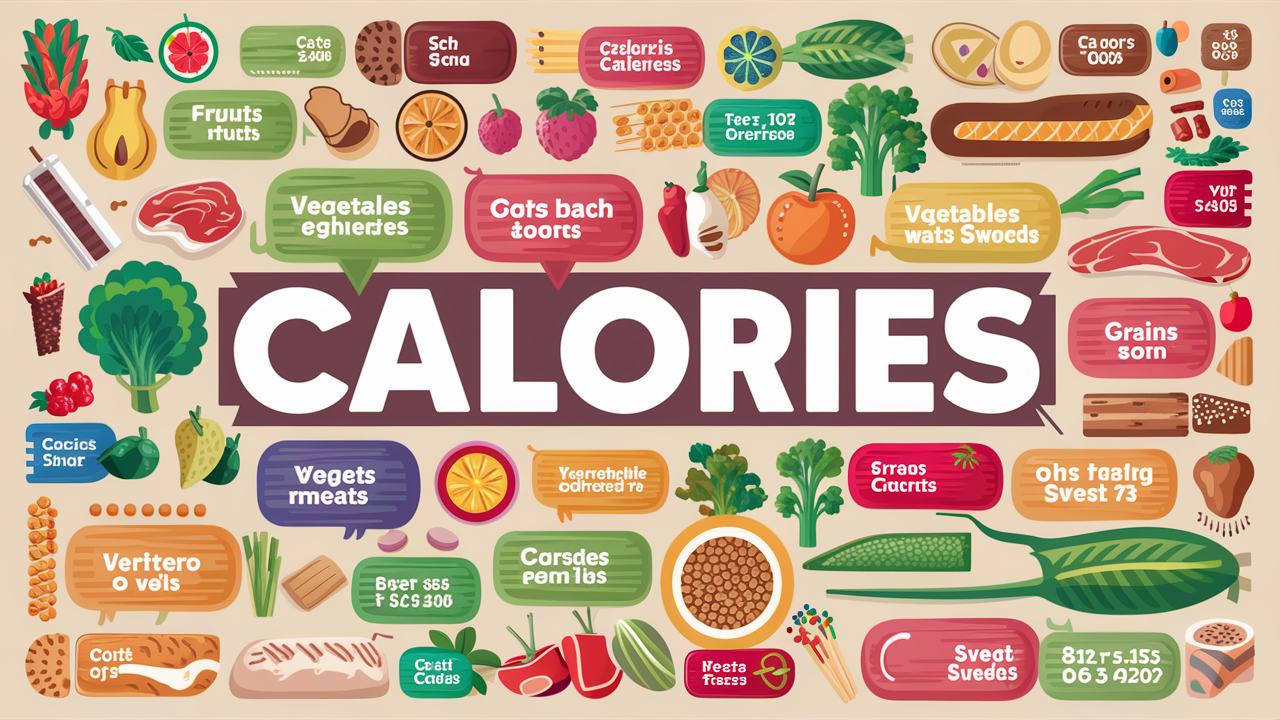Introduction:
In the vast world of nutrition, few terms wield as much influence and intrigue as “calories.” From the depths of weight loss strategies to the pinnacles of fitness goals, calories reign supreme in discussions on health and wellness. But what exactly are calories, and why do they hold such sway over our well-being? In this comprehensive exploration, we’ll embark on a journey into the realm of calories, deciphering their significance, unraveling their impact on our bodies, and dispelling the myths that often shroud them.
What are Calories?
Defining Calories:
Understanding the Basics Calories serve as the currency of energy within the body, providing the fuel necessary for our physiological processes to function optimally. Each calorie represents a unit of energy, essential for sustaining life and vitality. When we consume food and beverages, we are essentially ingesting energy in the form of calories. These calories are utilized by the body to carry out various functions, ranging from basic metabolic processes to physical activity.
The Science Behind Calories:
Exploring Energy Units Delving deeper into the science of calories unveils the intricate dance of energy balance within our bodies. Energy balance, the equilibrium between calories consumed and calories expended, lies at the heart of weight management and overall health. Our basal metabolic rate (BMR), the energy expended at rest to maintain vital functions, accounts for a significant portion of daily calorie expenditure. Additionally, calories are expended through physical activity and the thermic effect of food, the energy required for digestion and nutrient metabolism.
Caloric Content of Macronutrients:
Carbohydrates, Proteins, and Fats Macronutrients, namely carbohydrates, proteins, and fats, serve as the primary sources of calories in our diet. Each macronutrient provides a distinct amount of energy per gram, influencing overall calorie intake.
Calories and Weight Management
Caloric Balance:
The Key to Weight Loss or Gain At the crux of weight management lies caloric balance – the delicate interplay between calories consumed and calories expended. To achieve weight loss, a calorie deficit must be established, wherein energy expenditure surpasses energy intake. Conversely, weight gain necessitates a calorie surplus, wherein energy intake exceeds energy expenditure. Striking a balance between the two is essential for achieving sustainable weight management goals.
Counting Calories:
Pros and Cons of Tracking The practice of counting calories, while often touted as a tool for weight management, comes with its own set of advantages and disadvantages. On one hand, counting calories fosters heightened awareness of portion sizes and calorie content, empowering individuals to make informed dietary choices. However, the obsessive nature of calorie tracking can veer into disordered eating territory, potentially fostering unhealthy relationships with food.

The Role of Metabolism in Caloric
Expenditure Metabolism, the collective set of biochemical processes within the body, governs the utilization of calories for energy production. Basal metabolic rate (BMR) forms the cornerstone of metabolism, representing the energy expended at rest to sustain vital functions. While factors such as age, sex, and genetics influence BMR, lifestyle factors such as physical activity level and muscle mass exert modifiable effects on overall calorie expenditure.
Calories and Health
Quality vs. Quantity:
Importance of Nutrient-Dense Foods Beyond mere calorie counting, the quality of calories consumed holds profound implications for health and well-being. Nutrient-dense foods, rich in essential vitamins, minerals, and other vital nutrients, offer unparalleled benefits for overall health. Fruits, vegetables, whole grains, lean proteins, and healthy fats epitomize the essence of nutrient density, furnishing the body with a plethora of health-promoting compounds. In contrast, calorie-dense foods laden with added sugars, refined grains, and unhealthy fats often lack the nutritional fortitude to sustain optimal health.
Hidden Calories:
The Sneaky Culprits in Your Diet Unbeknownst to many, hidden calories lurk within the confines of our diet, masquerading as innocent additions to our meals and snacks. Sugar-sweetened beverages, high-fat condiments, and processed snack foods represent common sources of hidden calories, capable of sabotaging weight management efforts and undermining overall health. By exercising vigilance and scrutinizing food labels, individuals can circumvent the pitfalls of hidden calorie consumption.

Caloric Intake and Disease Risk:
Exploring the Research The intricate relationship between caloric intake and disease risk transcends mere numerical equations, encompassing a myriad of factors ranging from dietary composition to lifestyle behaviors. While excessive calorie consumption may predispose individuals to obesity and its associated health consequences, including type 2 diabetes and cardiovascular disease, the quality of calories consumed exerts a profound influence on disease risk. Diets rich in whole, minimally processed foods are inversely associated with chronic disease risk, offering a beacon of hope amidst the complexities of modern dietary patterns.
Dispelling Common Myths
All Calories are Created Equal Despite the prevailing notion that calories are universally interchangeable, the truth belies such simplistic assumptions. Not all calories are metabolized equally within the body, as evidenced by the divergent physiological responses elicited by varying macronutrient compositions. Whereas nutrient-dense foods promote satiety and metabolic efficiency, calorie-dense, nutrient-poor foods fuel metabolic dysfunction and perpetuate cravings, perpetuating a cycle of overconsumption and weight gain.
